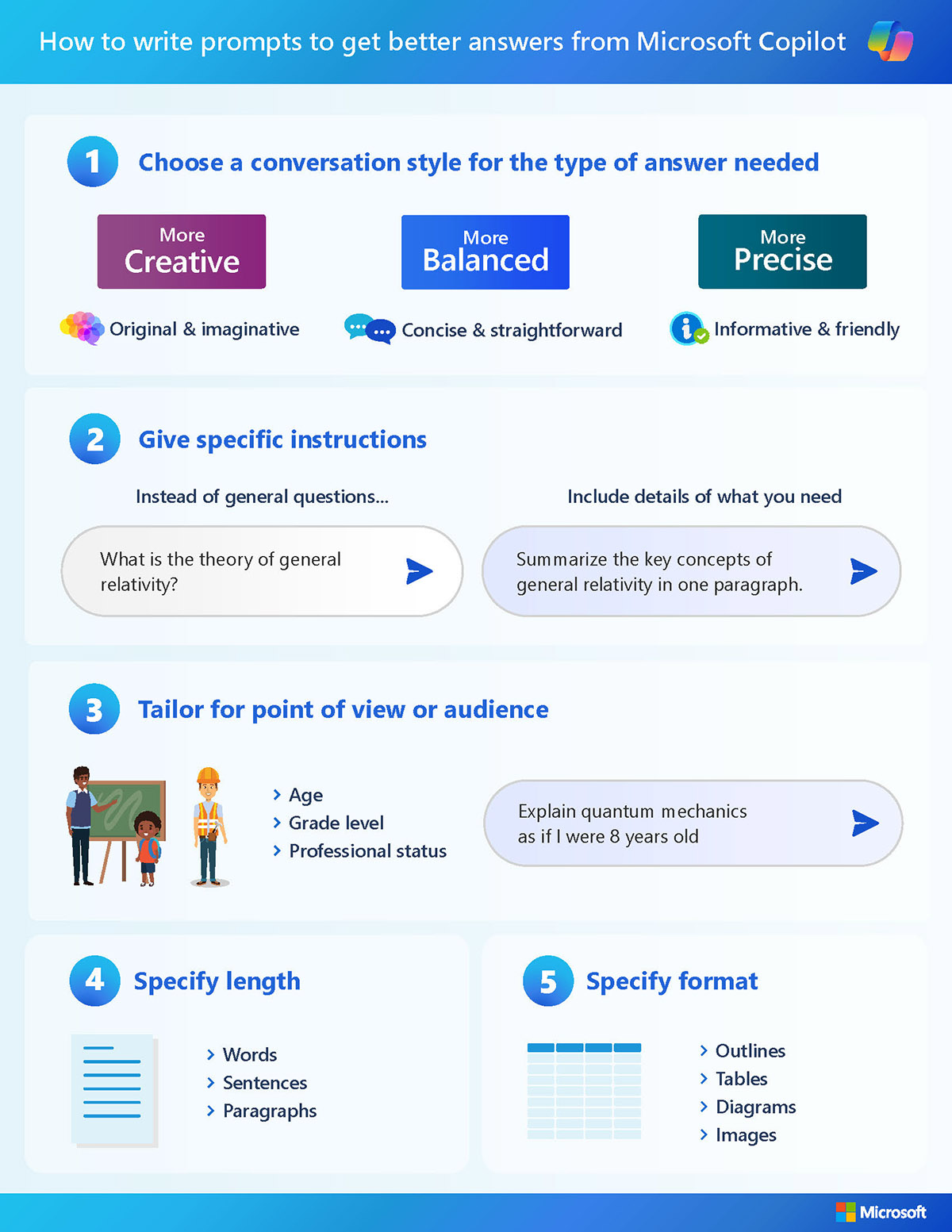Writing Prompts
What Are Writing Prompts?
One of the most important parts of using AI successfully is incorporating effective writing prompts. Writing prompts are instructions we give AI for generating specific text outputs.
Think of it like ordering a sandwich. You don't walk into the restaurant and say, "I want a sandwich." To get exactly what you want, you tell them the type of bread, meats, cheese, and condiments to add.
Using more details in your writing prompts helps AI understand exactly what you want.
Here are some tips for writing effective prompts for AI:
- Be absolutely clear and specific.
- Use direct language and avoid ambiguity.
- Avoid overly complex jargon or vocabulary.
- Provide relevant context when necessary.
- Use action-oriented language to have AI take action or offer creative outputs.
- Give it a goal. Think of it like a story or asking a co-worker to do something.
- Use “Do this” and avoid using “Don’t do this.” Be specific with your Do’s.
- Provide examples in your request.
- Use polite human language.
- Use incremental prompting. Start with a simple prompt and gradually increase the level of complexity to elicit more detailed and relevant information.
- Give it a persona; results will change greatly! Example: “Act as a dentist and tell me …”
- Re-prompt by asking it if it missed anything.

How Can Writing Prompts Be Used in AI?
- Answer questions
- Brainstorm ideas
- Summarize pasted content
- Translate texts in Azure unsupported languages like Klingon and Hexidecimal!
- Proofread essays and other work
- Write code and pseudocode
- Draft documents and emails
- Generate headlines from pasted content
- Create quizzes, tests, multiple choice questions, etc.
- Create software macros to automate tasks
- Generate puzzles
- Generate riddles, brain teasers, etc.
- Ask opinions on subjects or your thoughts
- Simulate Linux, Bash, PowerShell, or MySQL
- Refactor code and database queries
- Get SCHEMA optimization suggestions
- Act as a personal assistant (ex., take notes)
- Diagnose problems
- Act as a given persona (ex., therapist, Dungeon Master in Dungeons & Dragons, etc.
- Many more!
